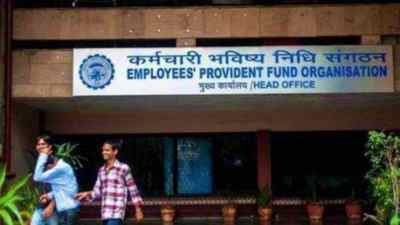A growing distrust
The twice-born Press Council of India -- it was dissolved by Indira Gandhi during the Emergency -- is once again facing a challenge. Its ...

The twice-born Press Council of India 8212; it was dissolved by Indira Gandhi during the Emergency 8212; is once again facing a challenge. Its existence is not in doubt. Its effectiveness is. This time, the attack is not by the government but by the Indian Newspapers Society INS, a body of proprietors. The Council, particularly its chairman, P. B. Sawant, has been assailed for acirc;euro;tilde;acirc;euro;tilde;having hostile attitude towards the newspaper industryacirc;euro;trade;acirc;euro;trade; and going beyond the authority delineated by the Act.
That the Councilacirc;euro;trade;s impartiality has been questioned, after its verdict against a leading English daily in using the campaign on human rights for its own purpose, is a point of concern. In the last 32 years 8212; the Council was first constituted in 1966 8212; there have been several pronouncements against big newspapers. But never before did the INS assail the Council. Does it mean that the proprietors as a body have come to resent the Councilacirc;euro;trade;s criticism or does it suggest that the Council is exceeding its brief? To leave thematter at this does not help either newspapers or the Council. The subject needs to be debated widely and candidly to find out what has led to the distance between the two.
The Council was constituted acirc;euro;tilde;acirc;euro;tilde;for the purpose of preserving the freedom of the Press and of maintaining and improving the standards of newspapers and news agencies in Indiaacirc;euro;trade;acirc;euro;trade;. As for government, the Press has known no restriction from it since independence except for the 19-month-long censorship during the Emergency June 1975-77.
In fact, the shoe is on the other foot. The Press has been cornering the government even without provocation. As a member of the first Press Council, I recall that the government would come before it to seek protection against blackmail or pressure exerted through planted or concocted news stories. No newspaper brought any case to point out the governmentacirc;euro;trade;s interference. The Tribune complained against the then Bansi Lal government in Haryana. But that was on the governmentacirc;euro;trade;s denial of advertisements. Therewas no direct threat to the freedom of expression. Still the Haryana government was taken to task.
The burden of complaints by journalists was that they had not been paid according to the grades laid down by the Wage Board. Such complaints were referred to the labour court. If I remember correctly, there was not a single instance where a journalist had come before the Council to say that he had been stopped from writing in his newspaper what he preferred to write.
The only case falling in the category was the one against the owner, K. K. Birla, of The Hindustan Times. It was about the dismissal of the editor, George Verghese, who had alleged that he had been punished for his views. But before the Council could pronounce its verdict, it was dissolved. The government did not want to risk the indictment of Birla because he was close to Indira Gandhi and her son, Sanjay Gandhi. Birla was appointed chairman of the defiant Indian Express during the Emergency.
In a way, the Council and the proprietors havenever crossed swords till now. In a country where 99 percent of newspapers have the same families editing and owning newspapers, the attack on the Council is unfortunate. When personal predilections or cases unconnected with the Press freedom are brought in, it becomes all the more unfortunate.
A weakened Press Council is not in the interest of newspapers. It is this body towards which the journalist, the proprietor, the government and an ordinary reader look for safeguarding the freedom of the Press. It is the Council which has to mollify readersacirc;euro;trade; fear on the allegations of unseen internal control over the editorial lines adopted by newspapers and exercised by persons who control the finances.
There is no doubt that the owner has to ensure that his product sells. He has to foot the monthly bill. Ultimately, he is the person who has to see that the publication is viable. But so many industries in India have been brought to the ground because the proprietors have insisted on running them themselves. Yetthe best of the ventures are left to professionals.
In the newspaper industry, the professionals are primarily journalists. Their input is crucial. By corroding their prestige or by humiliating them, the publication can come a cropper. If the contents of a publication are not up to the mark or lack credibility, what will the marketing executives sell? Craven consumerism or reckless pursuit of elitism increasingly highlighted by the Press is not so disconcerting as is the slanting or colouring of stories or their interpretation. There are proprietors who do so for their personal or business interest. Some believe that their publication is the clout they can use for a particular purpose. Thank God, this fad is confined to only a few.
Still, the Press Council cannot afford to join issue even with the few. Its purpose is different. It has to act in the higher domain of values and standards. Its force is moral and it weakens itself when it dwells on the needling by a handful. The more it gets involved in whatis strictly outside its territory, the more distant it will be from its main job: to keep the Press clean of the dirt of unethical writings.
Journalists too have fallen from the known standards. Some of them are too ready to oblige the government. Many can be influenced. The report, adopted by the Council this April, shows how they have enjoyed the favours and facilities extended by the central and state governments. The fourth estate has come to be equated with real estate. Accredited correspondents get two out of 100 houses in housing colonies in Maharashtra. Three percent of housing board plots and houses are reserved in Tamil Nadu for journalists. At Shimla, a house is straightaway allotted to a journalist on his posting.
The lesson to learn is that some journalists and some owners have given a bad name to the Press. The INS is not justified in flailing the Press Council for criticising a few owners. Nor is the Press Council justified in running down the proprietors for the failings of a few.Probably, the Council does not have many members who can rise above petty professional rivalries. The Council should be reconstituted with people who are credible enough and eminent enough to be members of the highest Press body in the country.
The Council should also appreciate that despite numerous limitations, the Press is playing a crucial role. Some of the owners are professionally top class. And there is a group of journalists who have the courage to achieve heroic battles for the common man. The Council should be their sentinel.
- 01
- 02
- 03
- 04
- 05































